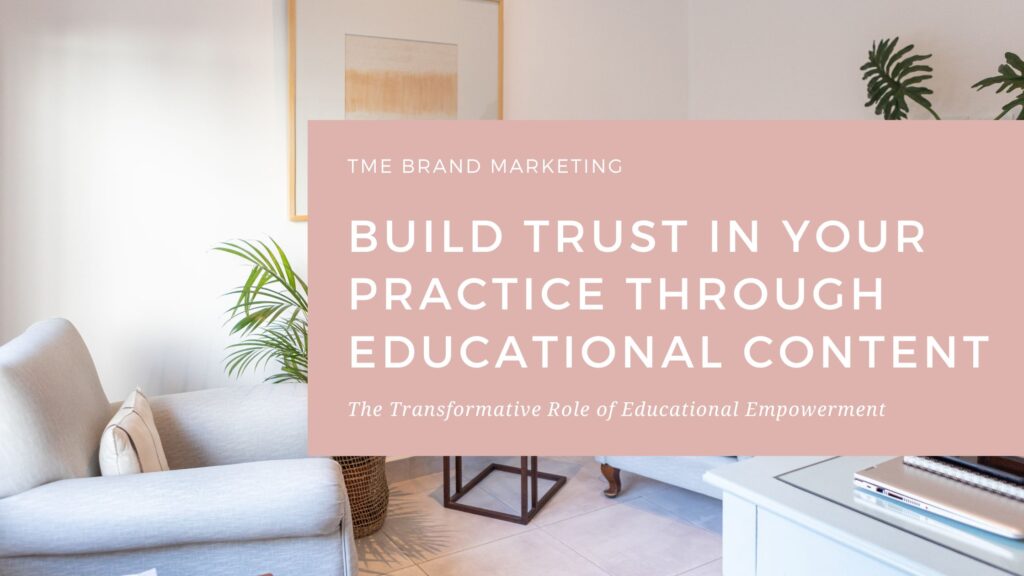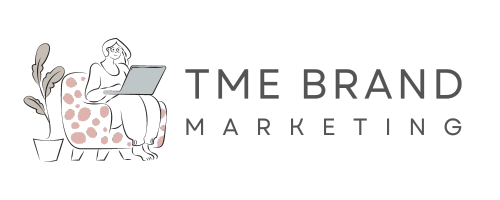
When it comes to therapy and counseling, the importance of authenticity cannot be overstated. Authenticity builds trust and trust builds long-term therapeutic relationships. BUT when it comes to marketing yourself and gaining clients, it is impossible to have authentic one-on-one conversations with every potential client.
This is why it is so important to produce high quality, educational content for your website and social media. Producing educational content (blogs, posts, podcasts) gives you the ability to connect with potential clients at scale. It allows you to set yourself up as the expert in your specialty, talk about real problems your audience face, and gives them an avenue to book an appointment with you.
Example time: let’s say you specialize in depression in teens. Your audience online is a mix of teenagers and parents of teenagers. So, you wrote a blog article about “How Depression Affects Sleep in Teenagers.” Then, you posted it on social media. A mom sees it, goes to your website to read it, immediately resonates with it and books an appointment through your website for her teenager.
Through one blog and post, you made a connection with someone you have never met before, established trust, and got an appointment on the books. Now that blog and post is out there forevermore for anyone else who has a NEED for the content and a NEED for your services.
Education is a powerful agent of change. When therapists provide well-researched and relevant educational content, it empowers their audience with knowledge. This knowledge becomes a source of understanding, self-awareness, and a foundation for personal growth. Potential clients may discover that you are the first step forward into feeling more fulfilled. And existing clients are better equipped to actively participate in their own healing journey.
Imagine this: you have several female clients who are facing heavy criticism at work and at home. On your social media, you post a statistic: “Working mothers are ten times more likely than working fathers to take time off to care for sick children. Of women who must miss work to care for sick children, 60% are forced to forfeit pay for their time.” To your surprise, your clients want to talk about this. “Yes!” they say. “I’m burnt out and I don’t know what to do. I get punished for things outside of my control.”
Authenticity in therapy is a reciprocal process. Therapists who genuinely share their expertise and knowledge create a safe space for clients to be authentic in return. Educational content serves as a common ground for both parties to engage in meaningful discussions. Through being open and honest with your content, therapists invite clients to be open in return, vulnerable, and authentic about their struggles and aspirations.
Trust is a delicate yet essential component of the therapeutic relationship. Clients are more likely to trust therapists who are transparent and communicate openly. Educational content acts as a tool for therapists to demystify the therapeutic process, making it more accessible and understandable for clients. This transparency fosters trust, as clients feel more secure in the knowledge that their therapist is knowledgeable, reliable, and committed to their well-being.
Wouldn’t you rather: See the office space, the environment, and the person you are meeting prior to meeting them? When you go to meet someone for the first time, don’t you look them up in some way? Can you imagine the urgency a person feels when looking you up as someone who can help them improve their mental health?
It’s just as important to educate about the experience you provide as it is to provide educational content about your specialties.
When therapists and clients share a common understanding of mental health issues, treatment modalities, and goals, it creates a collaborative atmosphere. Educational content serves as a bridge, facilitating communication and mutual understanding. This shared knowledge becomes a cornerstone for building a therapeutic alliance based on empathy, respect, and authenticity.
By leveraging the power of good educational content online, therapists can empower their clients, foster authenticity, and ultimately build trust at a larger scale. The authenticity that arises from shared knowledge creates a therapeutic alliance where both parties actively contribute to the healing process. Smart, educational marketing can lead to a therapeutic journey characterized by mutual understanding, growth, and lasting positive change for both therapist and client.
